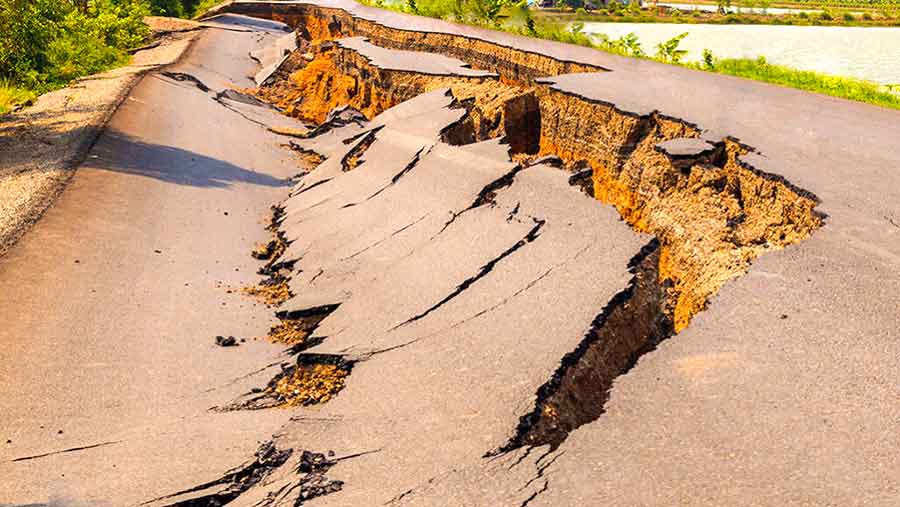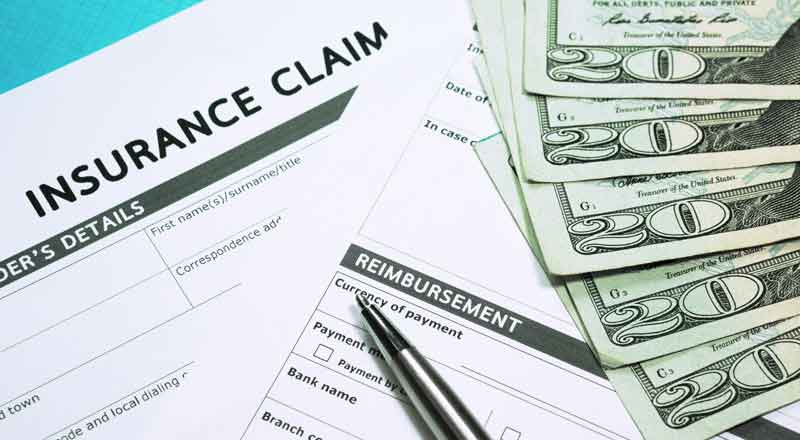Written by Andy Gurczak
August 1, 2021
A common concern amongst insured homeowners that have suffered damage to their home, is where will they stay while it’s repaired. Equally important and concerning, is wondering if the cost of temporary living arrangements fit into their budget. Having loss of use coverage included in your homeowners insurance policy can help. With this in mind, if your home suffered damage by a covered loss, loss of use coverage can help pay for your additional housing. As well as living expenses during the repair or rebuilding process.
What is Loss of Use Coverage?
As you already probably know, homeowners insurance is protection for your home and personal property against certain hazards covered by your policy. For example, fire, theft, wind damage or vandalism. But did you know that most homeowners insurance policies also include a Loss of Use clause? Moreover, this clause is meant to cover any additional living expenses you have to incur on meanwhile you are simultaneously forced to live away from home due to repairs. In other words, if your home becomes uninhabitable after a covered loss, your insurance may also cover your living expenses in the meantime.
This type of coverage is also known as additional living expenses (ALE) or Coverage D. Most important, it can help you pay for everything from fuel expenses to groceries and hotel bills. In fact, if you rent out your property, loss of use coverage may also even help you recover lost rent if a covered loss requires your tenants to live elsewhere. With this in mind, it’s important to know that your loss of use coverage limit is typically about 20% to 30% of your home’s insured value
Comprehensive list of commonly covered additional living expenses
- First, a hotel or rental home that’s an equivalent size as the one you had to leave.
- Second, food from grocery stores or restaurants, as well as any replacement of food that perished during the disaster.
- Moreover, loss of use coverage must also to cover gas. Of course this is if your your commutes and errands being a longer distance than usual.
- Likewise, parking and transportation fees that you wouldn’t have encountered had you been in your home is also covered.
- Furthermore, pet boarding due to a hotel or home not accepting them or someone having to care for them is equally important.
- Moving costs and temporary storage fees to protect your personal belongings is also covered.
- As well as clothing and utilities.
- Lastly, another thing loss of use covers is fair rental value. For this reason, if you’re a landlord is no longer able to collect rent because their property is destroyed by a covered peril, then homeowners policy can reimburse them for lost rental income. In fact, loss of use coverage can reimburse up to 12 months after the covered loss took place.
How Much Is Reimbursed with Loss of Use Coverage?
Loss of use coverage reimbursement is unique to every person, family and specifically their situation. Therefore, the amount of coverage may be different for homeowners and renters because each total coverage amount derives from a separate portion of their policy.
Limits on loss of use coverage
Homeowners policy loss of use coverage limit
Loss of use is usually restricted to 10% 20% of your dwelling coverage, which is the amount on your policy to repair/rebuild your home.
Condominium policy loss of us coverage limit
Similarly to homeowners policy, some condo insurers will combine your dwelling coverage and personal property coverages. For instance, if you have a $60,000 limit for your dwelling and a $30,000 limit for personal property, then you’ll get 20% ($18,000) of the combined $90,000.
Renters policy loss of use coverage
Furthermore, depending on your insurance company, loss of use coverage can either be a percentage of your personal property coverage, or a flat amount. Usually, the amount can be anywhere between $3,000 and $5,000.
Prohibited use
Moreover, this section of your loss of use coverage covers both your additional living expenses and fair rental value reimbursements for a certain number of days. However, the difference is that this would be in case that local authority or a physical impediment prevents you or your tenants from accessing the property.
For example, that your neighborhood was recently ravaged by a hurricane. Maybe your home is fine, but the roads and utility poles nearby your home are still hazardous. For this reason, the local government forbids you from returning to your home, until everything goes back to normal. If that’s the case and you need to be away for up to 30 days, be sure to file a prohibited use claim under the loss of use clause of your policy.
What does loss of use coverage not cover?
As mentioned before, in order to file a loss of use coverage claim, the damage that keeps you from your home must be a covered peril.
You can’t file a loss of use claim under the following circumstances:
- First and foremost, homeowners insurance never covers flooding, if you want protection against flood damage you should purchase flood insurance
- Second, homeowners insurance excludes earth movement of any kind. However, you may be able to add an endorsement to your homeowners policy for earthquake protection or you can purchase earthquake insurance.
- Furthermore, homeowners insurance doesn’t cover maintenance issues of pest control and infestations.
- Neither does it cover expenses that you were already responsible for before the loss such as mortgage payments, insurance or child care expenses.
- Last but not least, loss of use covers “necessary expenses”. Thus meaning you can’t stay at a 5-star hotel and get reimbursements.
How Much Loss of Use Coverage Do I Need?
As discussed above, the loss of use coverage limit is typically about 20% to 30% of your home’s insured value, or your dwelling amount. Consequently, if you happen to exceed your loss of use coverage limit and you still have additional living expenses, you may need to pay for those out of pocket.
However, some premier insurers offer unlimited loss of use coverage in standard policies to policyholders. For this reason, there will be no limit to how much they’ll reimburse you for reasonable expenses during your home’s repair or rebuilding process after a covered loss. Nevertheless, most insurers only cover you up to the 20% to 30% limit. Indeed, consult your policy’s declarations page (likely labeled “Coverage D”) to verify the amount.
Do I Have to Pay a Deductible for Loss of Use Coverage?
This will depend on your insurer and the kind of policy you have, but your deductible is generally waived for covered loss of use claims. However, you’ll still have to pay a deductible for the dwelling or personal property parts of your claim. Moreover, your homeowners insurance representative can explain your deductible further and help you explore other coverages you may want to add to your homeowners policy. In conclusion, the goal is to make sure you have coverage that fits your needs.
How to Get Reimbursed for Loss of Use Coverage
In order for your insurance company to corroborate your expenses and send you a check, you need proof of what you’re claiming. Therefore, if you plan on filing a loss of use claim, be sure to hold onto all receipts that can be considered “reasonable life expenses.”
Usually, your reimbursement check is sent to you after you’ve already racked up many expenses. However, if you’re short on cash or if your necessary expense requires a large sum of money, where your insurer may provide you with a loss of use check up front. But you’ll generally get payment on a monthly basis for the previous month’s expenses.
To submit a loss of use claim, you have a few options:
- First, you can visit the claims section of your insurer’s website
- As well as contact your homeowners insurance agent directly
- Or call your insurance company’s customer claims department
Then, you’ll probably have to fill out a form where you detail your “normal living expenses”. This would be the amount you typically pay for gas, food, rent and any other applicable expenses every month. Subsequently, whatever those expenses total out to is the amount that’s subtracted from whatever additional living expenses you incur on a monthly basis.
Consequently, if your normal monthly expenses on necessities is $2,500, but you spent $3,500 while your home was being rebuilt, your insurer may send you a $1000 check. This is, of course, if the extra expense related to your alternate living arrangements.
However, if you’re claiming fair rental value, the process is a little different. As a result, you’ll want to provide your agent or claims representative with all of the forms relating to the case. For instance, you’ll likely have to turn in bank information, lease agreements, and tax forms. Indeed, this is to prove that the damaged property was a source of income. Similarly to additional living expenses, your insurance company may send you a monthly fair rental value check meanwhile your property is being rebuilt.
Best way to beat the insurance company is to hire AllCity Adjusting
At AllCity Adjusting we help residential and commercial clients alike get the claims support they need. Moreover, we have over 50 years of combined experience helping get our clients the max settlement time and time again. If your claim has been low balled or denied entirely we can help increase your maximum settlement. Call us today for a FREE consultation. Experience the AllCity difference.
Real Support When You Need It!
Related Articles
7 Red Flags That Indicate You Need to Hire a Public Adjuster
If you own property, managing roofing insurance claims might seem tough. Knowing how to quickly deal with roof damage insurance claims from water, weather, fire, or unexpected events is helpful. In this guide, we’ll share useful tips to help you understand and work through roofing insurance claims more easily, aiming for a quicker solution.
Navigating Fire Damage Claims: What Every Property Owner Should Know
If you own property, managing roofing insurance claims might seem tough. Knowing how to quickly deal with roof damage insurance claims from water, weather, fire, or unexpected events is helpful. In this guide, we’ll share useful tips to help you understand and work through roofing insurance claims more easily, aiming for a quicker solution.
The Role of a Public Adjuster in Water Damage Claims
If you own property, managing roofing insurance claims might seem tough. Knowing how to quickly deal with roof damage insurance claims from water, weather, fire, or unexpected events is helpful. In this guide, we’ll share useful tips to help you understand and work through roofing insurance claims more easily, aiming for a quicker solution.
Understanding Water Damage Claims: A Comprehensive Guide for Homeowners
If you own property, managing roofing insurance claims might seem tough. Knowing how to quickly deal with roof damage insurance claims from water, weather, fire, or unexpected events is helpful. In this guide, we’ll share useful tips to help you understand and work through roofing insurance claims more easily, aiming for a quicker solution.
Essential Traits and Skills for a Successful Public Adjuster
If you own property, managing roofing insurance claims might seem tough. Knowing how to quickly deal with roof damage insurance claims from water, weather, fire, or unexpected events is helpful. In this guide, we’ll share useful tips to help you understand and work through roofing insurance claims more easily, aiming for a quicker solution.
Tips Expedite the Process :Commercial Roofing Insurance Claims
If you own property, managing roofing insurance claims might seem tough. Knowing how to quickly deal with roof damage insurance claims from water, weather, fire, or unexpected events is helpful. In this guide, we’ll share useful tips to help you understand and work through roofing insurance claims more easily, aiming for a quicker solution.
Stay Up to Date With The Latest News & Updates
Don't Wait - Get More
Get a free 1 hour consultation on your next call. So call today and challenge the insurance company narrative on your policy claim. We can help you with all your public adjuster claims support. Let us help you get more.
Join Our Newsletter
Do you want to learn more about public adjusting. In this newsletter we create helpful tips and hints and you will receive notifications when we post new articles.
Follow Us
Follow us on the following social networks.








Recent Comments